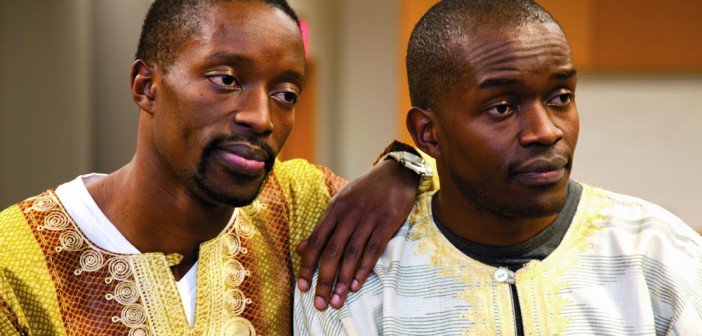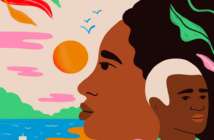Kenyan Brothers, trained in the US, go home to fulfill their father’s vision.
It is 9 p.m. on a Monday night. Milton Ochieng’s day at the Erastus Ochieng’ Memorial Lwala Community Hospital in Lwala, Kenya, has just concluded, barring the possibility of an overnight emergency. A fellow in gastroenterology at Alpert Medical School, Ochieng’, 33, is halfway through a month-long stay in Lwala.
Today, Ochieng’s patients have included two perilously ill children—a toddler with life-threatening pneumonia and an infant with malaria and severe diarrhea—and a 26-year-old woman with a disfiguring and debilitating, yet benign, facial tumor. They are among more than 100 patients treated on an average day at the hospital.
The children are better now, 10 hours after delivery of antibiotics and oxygen for the pneumonia and hydration and quinine for the malaria. But “they’re not quite out of the woods yet,” Ochieng’ says. The woman, who has been reduced to a liquid diet and is wearing a kind of sling, called a leso, around her head for lack of the $1,500 needed for surgery, is now scheduled to have her tumor removed at nearby Moi Teaching and Referral Hospital in Eldoret. The nonprofit Lwala Community Alliance—of which the hospital is part—will cover the cost.
On a Skype call from Lwala, Ochieng’s surgical mask still hangs around his neck, his thoughtful, slightly weary demeanor illuminated by a brilliant smile as he describes the work of the Alliance and the hospital, which he founded in 2007 with his brother, Fred, 31, a resident in internal medicine and pediatrics at Vanderbilt School of Medicine, and with support from their family and the community.
Milton Ochieng’ will soon return to Providence. But Lwala never leaves him. For the Ochieng’ brothers, this work is intensely personal as well as professional.
Not How Life Should Be
On Friday evenings, Milton Ochieng’ remembers, the coffins would arrive in Lwala, bearing the bodies of people who had died in hospitals in larger, nearby towns and were coming home for burial.
One night, the village awoke to the screams of a woman in childbirth with a breech presentation. The sounds of a desperate scuffle followed, as family members lifted her into a wheelbarrow and pushed her for miles to the road, where they prayed for a passing bus or other vehicle to take her to the nearest hospital, 30 kilometers away. Patricia Min Ben—the mother of the Ochieng’ brothers’ friend Ben—bled to death that night, in the wheelbarrow, by the side of the road.
It was not an isolated incident, Milton Ochieng’ says.
“We experienced death early in life,” he explains. “We lost friends and family members in the prime of their lives. We were not in any way special. It was just how life was. But my father taught us that it’s not how life should be.”




